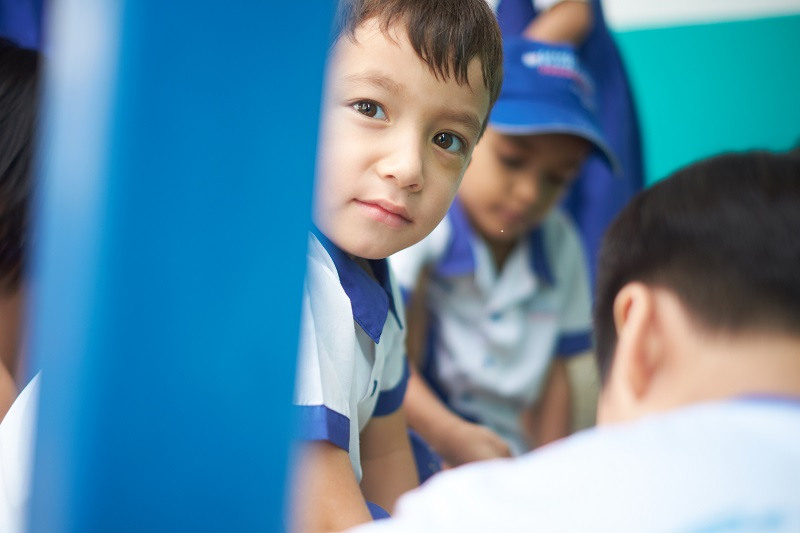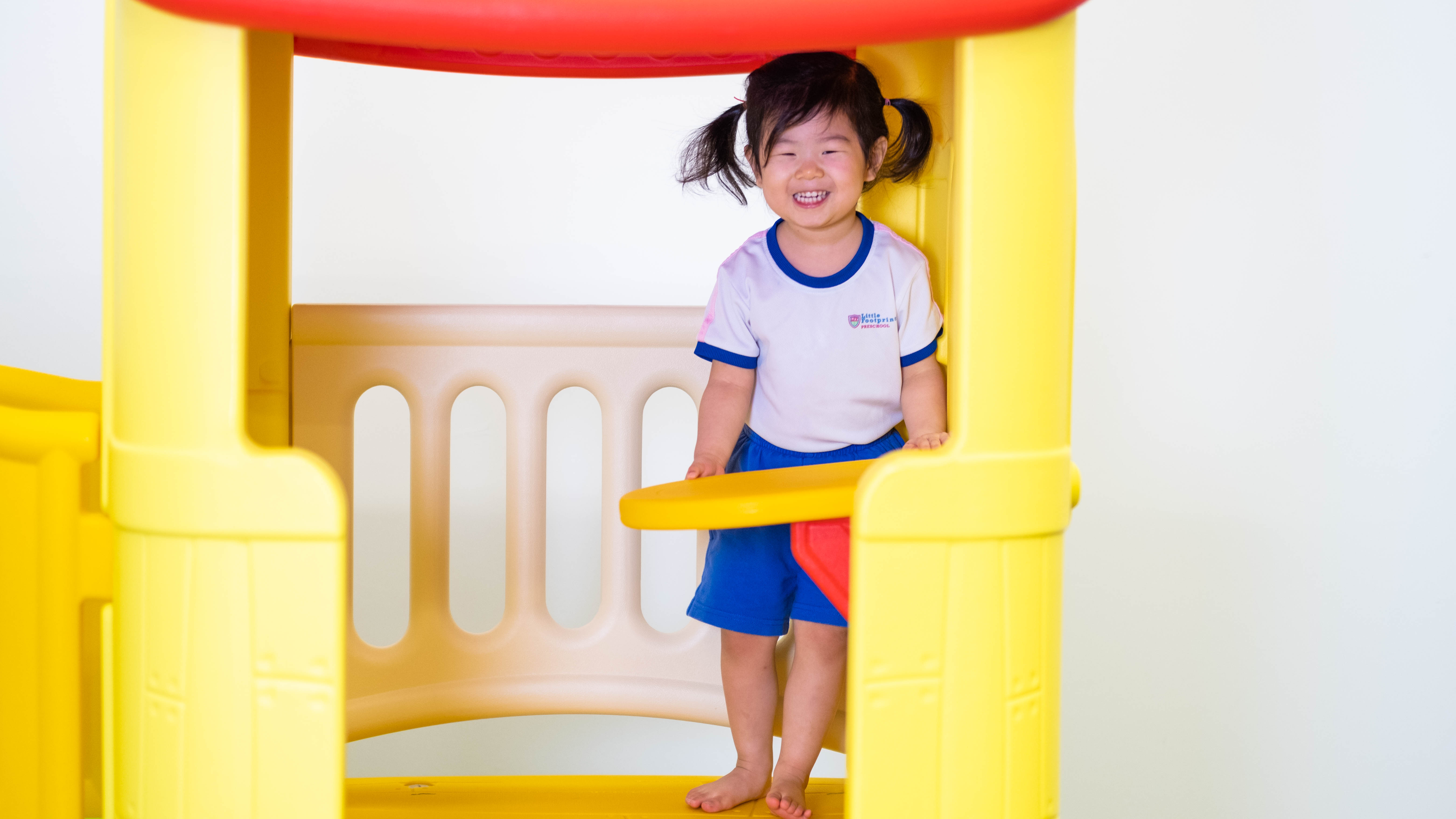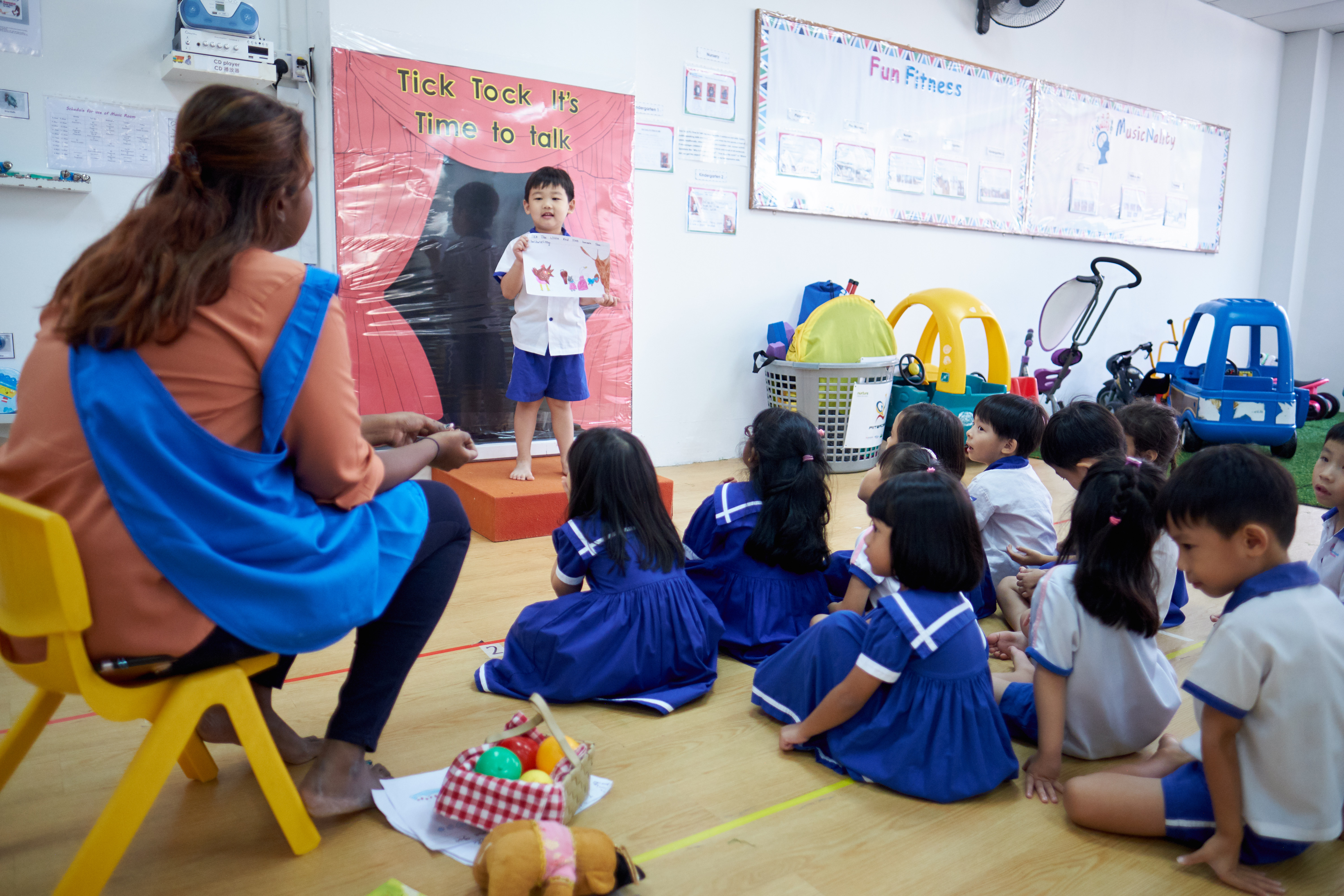
Does your child get easily over-stimulated after playing in a group, or does he thrive and is often the life of a party?
The quiet introverted child will tend to prefer playing alone, while the extroverted child interacts with others and seems to adapt well even with strangers. The difference between introvert and extrovert children can be easily observed especially in social settings.
Characteristics of an introverted child and why parents worry
Here are some traits and behaviour unique to introverted children, and these may bring worry to some parents.
1. They are quiet in social settings
Introverts prefer to observe from afar and not be the centre of attention in social activities. They may seem aloof, disinterested, or unable to communicate with others, so parents may be worried seeing their mannerisms. From playgroup level, teachers would already be able to tell if children exhibit such preferences.
2. They often hide behind their parents or avoid interaction with others
This group of kids might also be labelled as “shy”, although it is normal for young children to seek solace from parents. Some kids need more time to warm up, and introverted children need comforting assurance from trusted adults.

3. They get anxious around new people or new environments
Does your son refuse to greet a relative that he has never met before? This might snowball into a meltdown situation while the old folks may take it the wrong way about manners.
An embarrassing situation or uncomfortable parenting lesson?
4. They are more comfortable with one-on-one communication
You may notice that the introverted child develops friendships with one person at a time. He is able to share ideas and discuss them with another child or adult and is at ease doing so. However, when it comes to speaking aloud in front of a group, it would be the extroverted one who is likely to volunteer for it.
5. The tend to keep to themselves
Preferring to keep their own thoughts and feelings to themselves, parents often worry that their introverted children might be too “bottled up”. Often, they are only more expressive when they feel safe and comfortable in a familiar environment.
If you need them to speak up or share their emotions, talk to them in a safe haven (e.g. at home).
Tips to help introverted kids shine and gain confidence in social settings
Introverted children enjoy solo activities more; this can also be observed in a playgroup class with kids 18 months onwards in Singapore. Some parents may worry about social integration or behavioural issues. Thus, do take time to observe your child’s development and seek support when necessary.
Here are some ways to bring out the best in introverted children:

1. Avoid comparing an introverted child with an extroverted child
There’s no “better” child, and such comparisons affect their self-esteem. Everyone responds differently in social settings, especially young children who may not understand social norms.
Skip adding extra pressure on your child. Shaming the child in public is a no-no.
2. Understand their social preferences
If your child is able to articulate, check in with them about what makes her feel uncomfortable or comfortable in different social settings.
This could mean arriving earlier before the group comes, as this allows the child to be comfortable - as opposed to stepping into a birthday party full of unknown faces, which can be very stressful for an introvert.
Let this be a child-led initiative as it can help their confidence grow step by step.
3. Observe your child’s responses and feelings
Before heading out, share with your child what to expect. During the activity or event, watch how your child interacts or behaves. After the session, take the chance to give praise if you see that your child has taken steps to interact with others.
Chat about how your child feels and thinks – introverts tend to keep to themselves and that makes it hard for parents to understand them.
4. Respect their need for alone time
Give your child the privacy and solitude time they need. It’s much like how adults need to decompress, especially after our social meter has been active.
Don’t jam-pack their calendar with activities – remember to pencil in solo time for them to do what they enjoy such as reading and drawing.

5. Don’t push them to socialise or make friends
It’s nice to have a social butterfly interacting well with everyone. However, forcing an introvert to be the same is going to backfire.
Give your child space and time to decide when and whom they want to befriend. This means that their confidence is at a comfortable level, allowing them to be proactive. To support your child, start with one-on-one playdates.
6. Prepare them in advance when meeting big groups or new faces
Having a heads-up on what to expect will give your child an idea of what’s to come. Catching her unaware and leaving her helpless especially when the event is a must-go, can make things very stressful for all.
Parents can carry the child or hold them close so that they know that you are near.
7. Accept and embrace that every child is different
Introverts are often misunderstood - parents need to learn to accept that every child is unique. The most important thing in raising introverts is to learn to work with, not against, their strengths.
Some kids may be introverts now, but eventually grow up to ace social interactions as adults. It is also a skill to know when to speak when needed, and when to be quiet and observe instead.
Most importantly, it’s not a disadvantage to be an introvert. So, parents, take heart that your children will bloom in their own time.
Nurture confidence in a safe space for introverts and extroverts
At Little Footprints Preschool, our Tick Tock, It’s Time to Talk programme offers nursery and kindergarten children the opportunity to present their chosen topic based on the term’s theme. Developed as a home-school activity, families get to be involved with preparing for show and tell in front of their friends and teachers at childcare.

Find out how the Little Footprints Preschool curriculum goes beyond giving children a strong foundation in learning. With specialised programmes incorporated into our childcare curriculum for kids in Singapore, we believe in building children’s social skills and helping them gain confidence.
Book a tour of your preferred centre to find out more and check out our centre environment.
Follow us on social media to stay updated on our latest updates and happenings:




